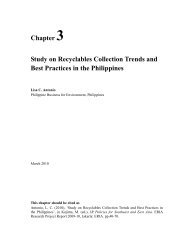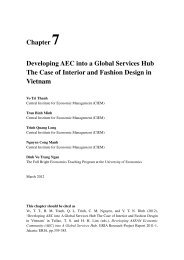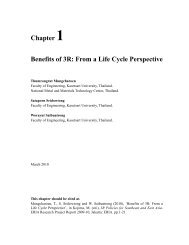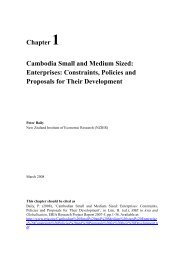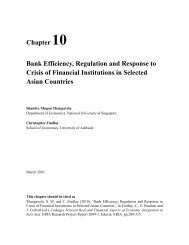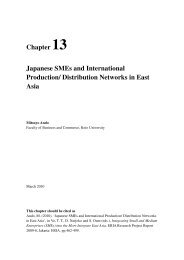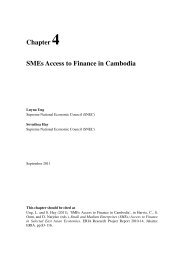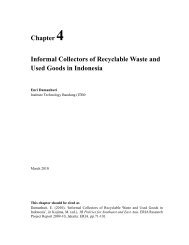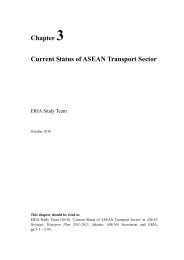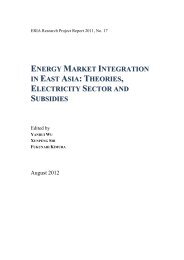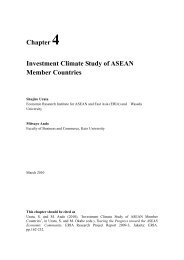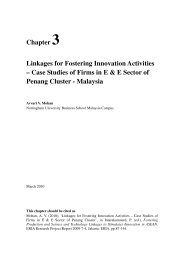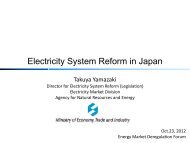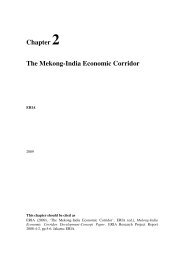Chapter 2 Cambodia - ERIA
Chapter 2 Cambodia - ERIA
Chapter 2 Cambodia - ERIA
Create successful ePaper yourself
Turn your PDF publications into a flip-book with our unique Google optimized e-Paper software.
Reversing the brain drain: In the labor market, the major challenge is to entice those that havebenefited in recent years from exposure to jobs outside of agriculture with high laborproductivity (e.g., in industry and services) to be “reallocated” back to agriculture, a move whichmay have a significant impact on growth and provide the necessary incentive for reversemigration back to the rural areas.The intractable sanitary and phytosanitary issues: <strong>Cambodia</strong> does not currently have acompliant basic SPS management system in place that would allow entry of its livestock andfisheries exports to key markets like the EU and China.Finance shortage: There are four main challenges for <strong>Cambodia</strong>’s rice exports: (1) lack ofcapital to buy unmilled rice surplus from farmers; (2) lack of rice storage capacity; (3) low levelof drying capacity for unmilled rice; and (4) inadequate number of middlemen. In 2010,<strong>Cambodia</strong>’s local middlemen could buy only 0.5 million tons while about 3.8 million tons of ricewere exported to Thailand and Viet Nam for further processing and packaging. Some exporterssay that an additional US$800 million is needed in order to buy all unmilled rice surplus fromlocal farmers. 24 The government-run Rural Development Bank provided only US$18 million incredit for rice millers in 2010. The government later offered US$36 million (up from $18million) for rice millers to buy paddy rice from farmers, according to the Ministry of Economyand Finance. This sum, however, is a small amount compared to market demand of US$350million. 25 Unregulated cross-border rice trade in places like Kompong Trabek causes the vastmajority of <strong>Cambodia</strong>’s roughly 3.5 million tons of annual rice surplus to slip away unprocessedto Viet Nam and Thailand. Farmers said they could sell their rice at a higher price to Vietnamesetraders. One farmer said, “I don’t think the government policy will be successful because the ricemillers are not hungry to buy our rice.” 2624 Radio France Internationale (Khmer Service) broadcast on January 3, 2010.25 Phnom Penh Post, January 17, 2011,http://www.phnompenhpost.com/index.php/2011011746118/Business/government-doubles-rdb-miller-lending.html26 <strong>Cambodia</strong> Daily, December 31, 2010 (1, 30).117



